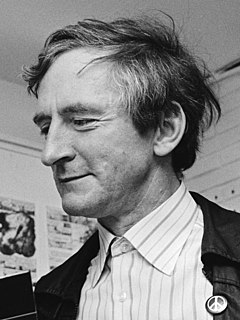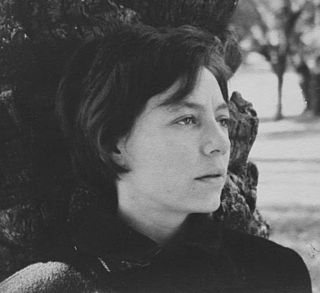A Quote by Neil Gaiman
I'm not blessed, or merciful. I'm just me. I've got a job to do, and I do it. Listen: even as we're talking, I'm there for old and young, innocent and guilty, those who die together and those who die alone. I'm in cars and boats and planes; in hospitals and forests and abbatoirs. For some folks death is a release, and for others death is an abomination, a terrible thing. But in the end, I'm there for all of them.
Related Quotes
If we desire to end our days in joy and comfort, let us lay the foundation of a comfortable death now betimes. To die well is not a thing of that light moment as some imagine: it is no easy matter. But to die well is a matter of every day. Let us daily do some good that may help us at the time of our death. Every day by repentance pull out the sting of some sin,that so when death comes, we may have nothing to do but to die. To die well is the action of the whole life.
Of this I am certain, that no one has ever died who was not destined to die some time. Now the end of life puts the longest life on a par with the shortest... And of what consequence is it what kind of death puts an end to life, since he who has died once is not forced to go through the same ordeal a second time? They, then, who are destined to die, need not be careful to inquire what death they are to die, but into what place death will usher them.
Switch on the television or glance at the newspaper: You will see death everywhere. Yet, did the victims of those plane crashes and car accidents expect to die? They took life for granted, as we do. How often do we hear stories of people whom we know, or even friends, who died unexpectedly? We don't even have to be ill to die: Our bodies can suddenly break down and go out of order, just like our cars. We can be quite well one day, then fall sick and die the next.
For if it is not lawful to take the law into our own hands and slay even a guilty person, whose death no public sentence has warranted. Then certainly he who kills himself is a homicide, and so much the guiltier of his own death as he was more innocent of that offence for which he doomed himself to die.
Human stories are practically always about one thing, really, aren't they? Death. The inevitability of death. . . . . . (quoting an obituary) 'There is no such thing as a natural death. Nothing that ever happens to man is natural, since his presence calls the whole world into question. All men must die, but for every man his death is an accident, and even if he knows it he would sense to it an unjustifiable violation.' Well, you may agree with the words or not, but those are the key spring of The Lord Of The Rings
But, who is Death? A figure that harrows and wastes wherever and however it pleases. This is also a possible description of the Countess Bathory. Never did anyone wish so hard not to grow old; I mean, to die. That is why, perhaps, she acted and played the role of Death. Because, how can Death possibly die?
So to be sick unto death is, not to be able to die-yet not as though there were hope of life; no, the hopelessness in this case is that even the last hope, death, is not available. When death is the greatest danger, one hopes for life; but when one becomes acquainted with an even more dreadful danger, one hopes for death. So when the danger is so great that death has become one's hope, despair is the disconsolateness of not being able to die.































